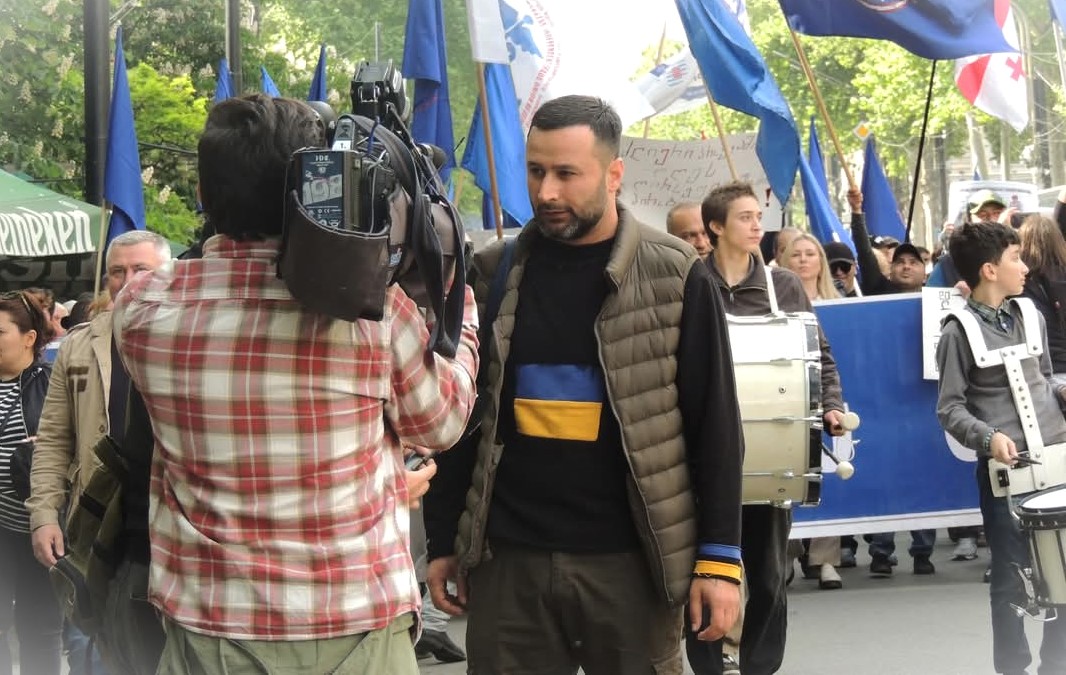In April 2025, Georgia’s Ministry of Finance Investigative Service conducted a search of the offices of the independent trade union LABOR in Tbilisi, raising significant public concern. The union broadcasted the search of LABOR’s office live, increasing public scrutiny.
The official reasons for the investigation remain unclear. Searches were carried out at four locations: LABOR’s current and former offices, the residence of its chairman Giorgi Diasamidze, and the venue where the union recently held its third extraordinary congress.
According to Giorgi Diasamidze, the investigation is not driven by financial or legal grounds but is a political move to suppress the organization’s social and labor activism.
“They are trying to clear the field to prevent any form of organized protest,” he stated.
LABOR has been actively organizing workers across various employment sectors and advocating for labor rights. Its growing influence—and its ongoing conflict with the Georgian Trade Union Confederation (GTUC) and its chairman Irakli Petriashvili—may be contributing to the current pressure.
Tensions with the GTUC
Tensions between LABOR and the GTUC escalated after LABOR announced its own candidate for the GTUC leadership in 2023. In February 2025, just months before the elections, LABOR expelled from the GTUC, effectively disqualifying it from participating.
The situation intensified when Irakli Dachi Beraia—a relative of a GTUC deputy chairman — appointed head of the Financial Police. Soon after, an investigation into LABOR launched, leading to the April search of its premises.
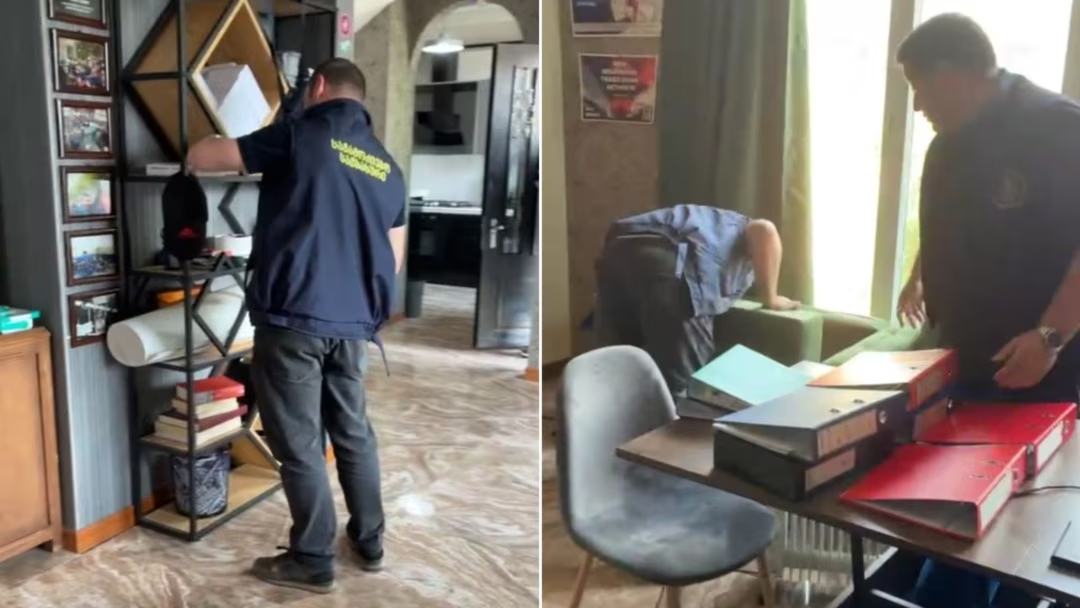
The search lasted seven hours, during which investigators seized documents. Some of them containing personal and confidential information — as well as electronic equipment, disrupting the union’s legal and operational activities.
Tamar Ansiani, a representative of LABOR, claimed that Irakli Beraia was abusing his power. She also linked LABOR’s unlawful expulsion from the GTUC to Irakli Beraia, who at the time served as Deputy Minister of Justice.
The Timing of the Search
The search occurred just two days before LABOR was scheduled to co-organize the May Day march. An event centered around workers’ rights, social justice, and economic equality. The march, emphasized the vital role of workers in the country’s social and economic fabric.
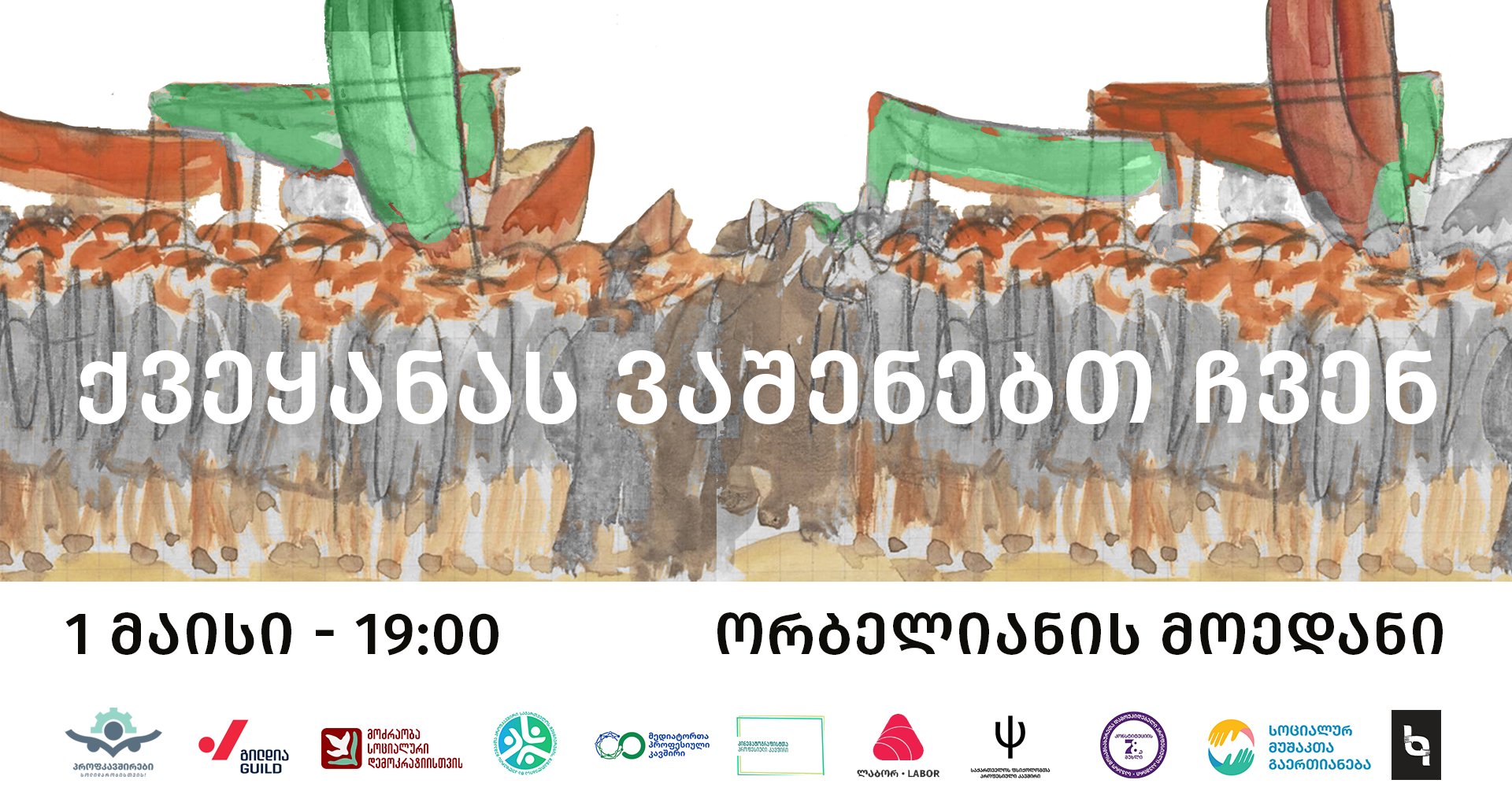
“the country is divided: on one side stands a greedy oligarchic elite, and on the other, the people.
We refuse to be silent witnesses to these processes. We say it clearly: society needs change based on social justice, labor rights, and a state focused on the well-being of its people“
The close timing has fueled speculation that the search aimed to intimidate and hinder the union’s participation in the protest.
International Context
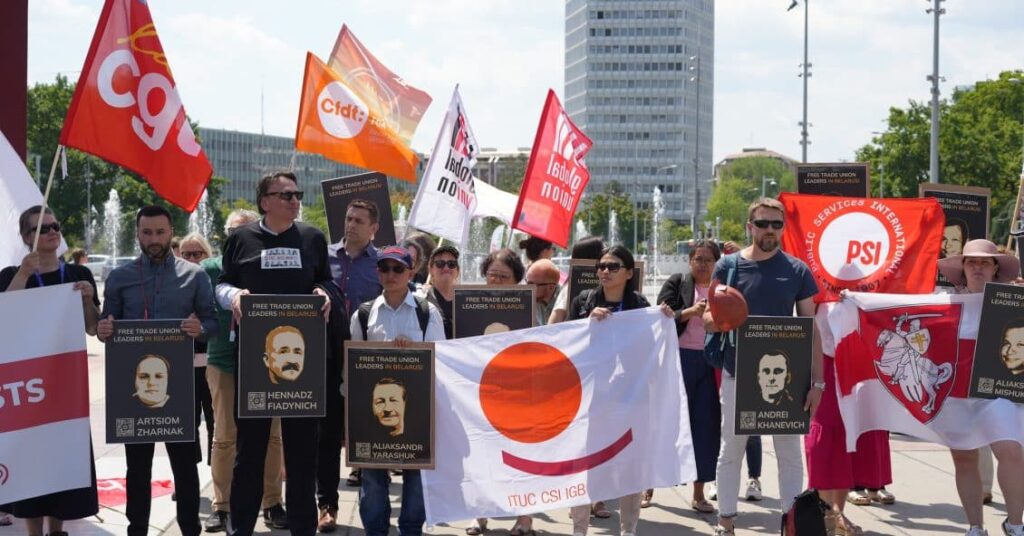
Georgia’s situation echoes similar patterns seen worldwide, where independent labor movements face legal and political pressure:
- Poland: In the 1980s, the “Solidarność” trade union became the main opposition to the communist regime. It was subjecte to government crackdowns, including arrests and office raids.
- Turkey: Trade union leaders frequently face arrests and are often accuse of undermining state order, resulting in ongoing legal pressure.
- Belarus: After the 2020 protests, numerous independent union leaders have been detained, their organizations branded “extremist”. Offices forcibly shut down or searched.
These examples show that independent unions are often target not only for defending labor rights but also because of their perceived political influence, making them vulnerable to state repression.
Independent trade unions and their leaders in Georgia are increasingly being compare to the fate of those in Belarus. It appears that the first target in this unfolding scenario is LABOR and its chairman, Giorgi Diasamidze
Why This Matters
In Georgia, the development of independent trade unions is still in its early stages. Building a democratic society requires a transparent and just environment where unions can operate without fear of repression. The fairness of investigations and the protection of civil rights are essential to avoiding the perception—and reality—of selective justice.
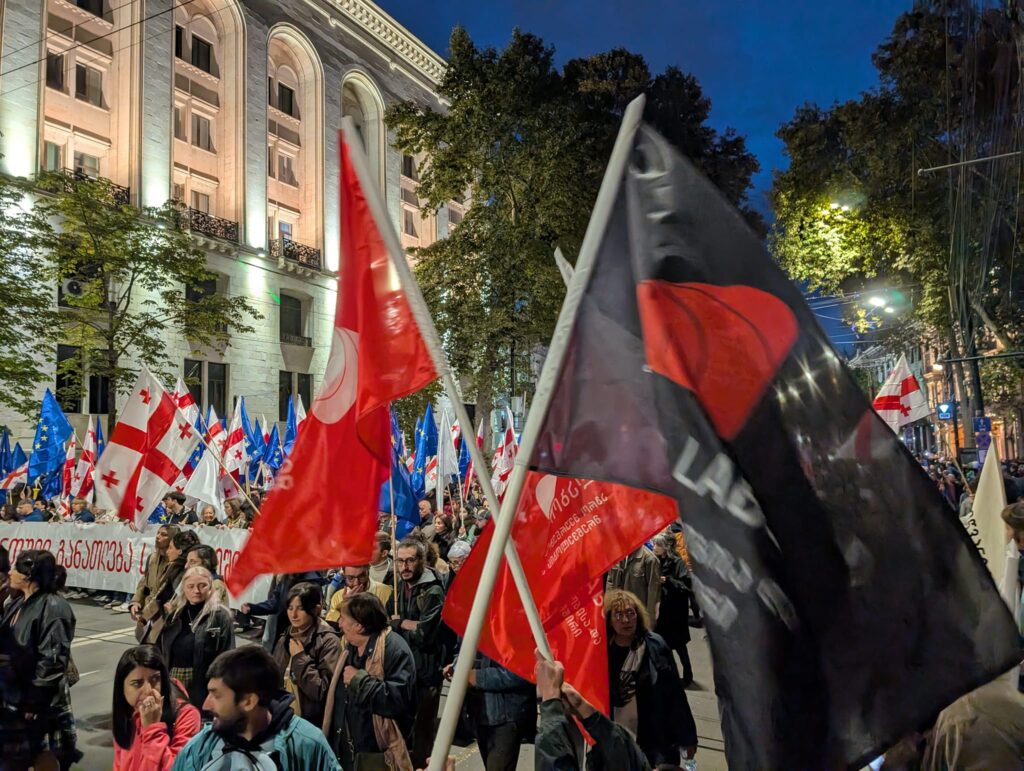
Conclusion
The search of LABOR’s offices represents more than an isolated event. It reflects broader challenges to civil liberties and democratic accountability in Georgia. Legal proceedings must be accompanied by public oversight to ensure they do not become tools to silence dissent. The freedom of unions—including their right to protest and express critical opinions—is a cornerstone of any democratic society.
